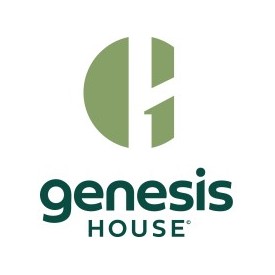Struggling with substance use disorder can be devastating. However, when you have more than just a problem with drug or alcohol abuse, it can shake your world to its very core. You know you have a problem and need help, but you have just acknowledged that you have what’s known as a dual diagnosis or co-occurring disorder. You might wonder what you are required to do once you have entered a dual diagnosis treatment center in Florida.
Fortunately, Florida is one of the best states for doing drug or alcohol abuse treatment. If you’ve been told you have a dual diagnosis, it means you struggle not only with substance use disorder but a co-occurring mental health disorder as well. It’s important to know what to expect.
Why Do You Need Dual Diagnosis Treatment?
If you have been told you have a dual diagnosis, it means you need special help and treatment for your drug or alcohol addiction as well as your mental health disorder. Dual diagnosis treatment specifically aims to help individuals struggling with co-occurring disorders. Both issues are treated at the same time, simultaneously.
According to the National Institute of Mental Health or NIMH, around half of all individuals who have a substance use disorder also have a mental health disorder. People who have mental health disorders often begin using drugs or alcohol because of that mental health condition. In their minds, using drugs or alcohol can help to alleviate the symptoms of their mental health condition. Unfortunately, the opposite is actually true as the substance can only exacerbate the severity of their symptoms.
When treatment doesn’t address both conditions when someone has a dual diagnosis, it can lead to the person relapsing faster. Addressing both disorders, on the other hand, gives the person a much better prognosis for success.
What Mental Health Conditions Are Common with Dual Diagnosis?
People with dual diagnosis are likely to struggle with a specific mental health condition. Certain conditions make it more likely for a drug or alcohol addiction to develop. The following mental health disorders are commonly present in people who suffer from dual diagnosis:
• Attention deficit hyperactivity disorder or ADHD
• Bipolar disorder
• Depression
• Dysthymia disorder with two or more depression symptoms
• Generalized anxiety disorder
• Obsessive-compulsive disorder or OCD
• Post-traumatic stress disorder or PTSD
• Schizophrenia
• Social anxiety disorder
Identifying the signs of co-occurring disorders is important. While it’s never wise to self-diagnose, you can recognize that you might have a dual diagnosis when seeking drug or alcohol treatment. The following signs may be present:
• Abrupt personality changes
• High-risk behaviors
• Social isolation
• Unhealthy substance cravings
• Financial or legal troubles
• Inability to control drug or alcohol use
• Tolerance buildup leading to the need for more of the substance you’ve abused
• Withdrawal symptoms that persist if you’re not using
The symptoms of your mental health disorder are often elevated when you have co-occurring disorders. When you enter a rehab facility to undergo dual diagnosis treatment, this will be taken into account.
What’s Included in Dual Diagnosis Treatment?
Dual diagnosis treatment in Florida is comprehensive and addresses your substance use disorder and mental health condition at the same time. It’s the best chance you have at a successful outcome with your treatment. Your treatment program is tailored specifically to your unique situation and needs.
The first step in your treatment is the detox process. You are monitored on a 24/7 basis by qualified staff as the drugs or alcohol are removed from your system. Medication management may be used if your addiction is moderate to severe to help ease the symptoms of withdrawal. If you need assistance, staff will intervene and provide it to you.
Once you have completed detox, your treatment may consist of the following:
• Individual therapy
• Group therapy
• Cognitive behavior therapy
• Family therapy
• 12-step programs
• Inpatient recovery
• Life skills training
Many people with dual diagnosis find that therapy sessions involving others going through the same experience is often best. It gives them the opportunity to learn what has worked for others in the same situation and how to recognize certain triggers and how to better respond to them.
Ready to get started? Call us today at 844-903-2111 so we can help you find the best Florida dual diagnosis treatment facility for you.










